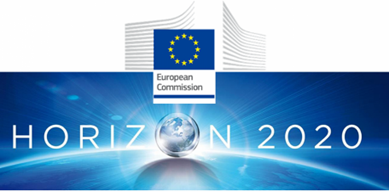
PErsonalized Robotics as SErvice Oriented applications (PERSEO) 
A sum of €4m (SHU €606k) has been awarded to Professor Alessandro Di Nuovo by Marie Skłodowska-Curie Actions (MSCA) – Innovative Training Networks (ITN), to fund this multidisciplinary project which will train a cohort of 15 outstanding doctoral candidates (ESR, 2 based at SHU) to be the new generation of interdisciplinary researchers and professionals for the forthcoming market of personal robots.
The Consortium comprises a multidisciplinary team of world-class academics and leaders of SMEs in AI Ethics, Robotics Law, Psychology, Machine Vision, Automation and Social Robotics, coming from 19 different organisations and originating from a total of 9 different European countries and the USA.
The two doctoral students/researchers will be recruited to work on the following two projects of Theme 2 (WP4) – Personalization in “Cognitive” interaction
The project will start recruiting in 2021.
Project Title: Modelling User Cognition for Adaptive HRI
Objectives: This project aims at user cognitive modelling for improving robot collaborative behaviour and at making the human-robot interfaces more intuitive for the individual user. To this end, it will create a general model of how the user thinks and makes decisions, then will use the data collected during the HRI experiments to refine the model and customise the interaction to the specific person and task. Variables to be monitored are those that affect human cognition, such as fatigue, emotion, stress and distraction. The final model will allow the cognitive architecture to have the capacity to infer inner user intents, which are not always consistent with behaviour and call upon expert systems for advice when needed.
Expected Results: This project goal is to create a modular cognitive architecture of the robot able to assess the inner cognitive status of the user and use this to reduce the cognitive load of the user and make more effective the collaboration. The robot will have the capacity to infer user intent from the interaction, store information from experiences similarly to human memory, and increasingly personalise the interaction.
Collaborators: Pal Robotics (Spain); Università della Campania L. Vanvitelli (Italy); Universiteit Twente (Netherlands).
Robot as Schoolmate for Enhanced Adaptive Learning
Objectives: Exploit closer collaboration among cognitive robotics and education psychology for personalized robotic teaching assistants. Carry out experiments in the classroom to collect data to build and train the robot’s cognitive architecture while studying children’s personal reactions to the robot. To this end, the project will mix neuro-cognitive modelling, computer vision and HRI interface design to provide robots of a controllable autonomy that can be programmed and supervised by teachers and parents.
Expected Results: A novel class of robotic teaching assistants that could behave like peers, i.e. capable to mimic the behaviours of children when learning mathematics. These robots can autonomously lead educational activities in form of a game, during which they interact with speech and gestures to guide the learner through learning procedures and prompt the children to identify errors in the robot behaviours. Raw data from children’s experiments will constitute an open benchmark database for testing novel machine learning algorithm.
Collaborators: Universität Bielefeld (Germany); Scuola Superiore Sant’Anna di Pisa (Italy); FundingBox Research Aps (Denmark).

